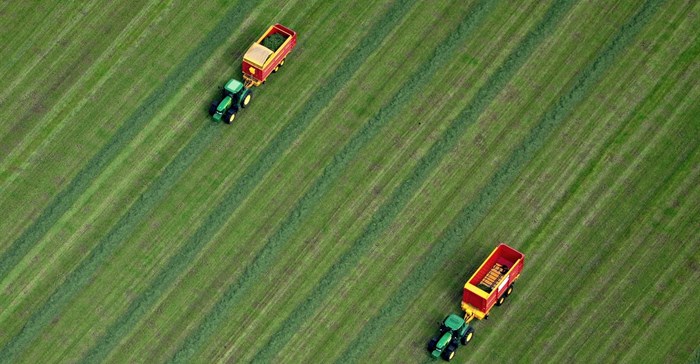Agriculture has the potential to lift the African continent out of poverty and alleviate hunger, however, the sector has struggled to perform in recent history, with reforms happening excruciatingly slowly. Agriculture contributes 32% to Africa's GDP and provides employment to 65% of the labour force on the continent according to the World Bank.
African soil, despite these numbers, remains greatly underutilised and a substantial amount of the continent's food is still imported. According to Trade Map, African countries imported about US$94bn worth of agricultural products during 2013, compared to exports amounting to about US$60bn.
In addition to the significant labour resources that are, as yet, untapped, Africa is home to millions of hectares of unexploited arable land. It is estimated that about 60% of the world’s available and unexploited cropland is in Sub-Saharan Africa. Furthermore, only between 5% and 7% of the continent’s cultivated land is irrigated, which leaves farmers exposed to the elements.
Given the nature of African agriculture, where a large proportion of farmers are smallholders or subsistence-based, it is essential to invest in and develop accessibility to quality inputs, markets for produce, good soils and soil management techniques, innovative finance tools and other resources needed for sustained agricultural production.
Key drivers
The key drivers which could see the African agricultural sector shift to a higher growth trajectory are all rooted in government policy. With subsistence and small-scale farming forming the bulk of agricultural activities on the continent, the provision of cooperative structures, financial backing, stable markets, improved infrastructure and knowledge sharing initiatives all stem from government and organisational structures on all levels.
Government and multilateral organisations need to focus on spreading skills and knowledge, increasing fertiliser use, increasing the availability of financing, implementing technologies to improve yields – including research into improved seed varieties – and improving infrastructure. If reforms are implemented efficiently, these focus areas will combine to lead to significant increases in yields in order for Africa to feed itself and ultimately lift a large proportion of the population out of extreme poverty.
Looking forward
There is a wide range of serious obstacles standing in the way of Africa reaching its full potential with regard to agricultural development. The role of government cannot be overstated. For African agriculture to prosper the local authorities need to take the lead. Unfortunately, most governments on the continent are under severe fiscal pressure, with inefficient revenue collection practices, large public wage bills, and severe infrastructure deficiencies.
As such, the necessary funds needed to kick-start the agricultural sector may not always be available on time. Nevertheless, being a key poverty-alleviating sector, we expect governments and NGOs on the continent to intensify their efforts to boost the agricultural sector over the medium to long term.
A concerted effort is needed
Growth in Africa’s agricultural sector has failed to reach its potential and there is no one quick fix to get the sector on a higher growth trajectory. A concerted effort is needed on all spheres, from improving techniques, markets and access to credit for small-scale farmers, to government policies to attract foreign investment and spur commercial agriculture and increased value add.
That said, the potential for growth in the agricultural sector on the continent is huge. Africa houses a large proportion of the globe’s unexploited arable land and there is significant scope for improvement with regard to irrigation, use of fertilisers and improved technology. Furthermore, the return to political stability in some key countries and programmes by governments and NGOs could unlock significant value in the medium to long term.
The above summary represents key extracts from a detailed KPMG report, Agriculture in Africa. The summary is not a substitute for reading the detailed report.
KPMG’s Global Africa Practice is a unique platform in which all KPMG member firms on the continent participate. With over 30 countries that have a KPMG office and more than 8,500 employees, we reach deeply into the continent. The objective of the African member firms is to provide consistent, high-quality services to multinational, regional and local clients and to enhance product offerings in certain previously under-serviced markets.







































